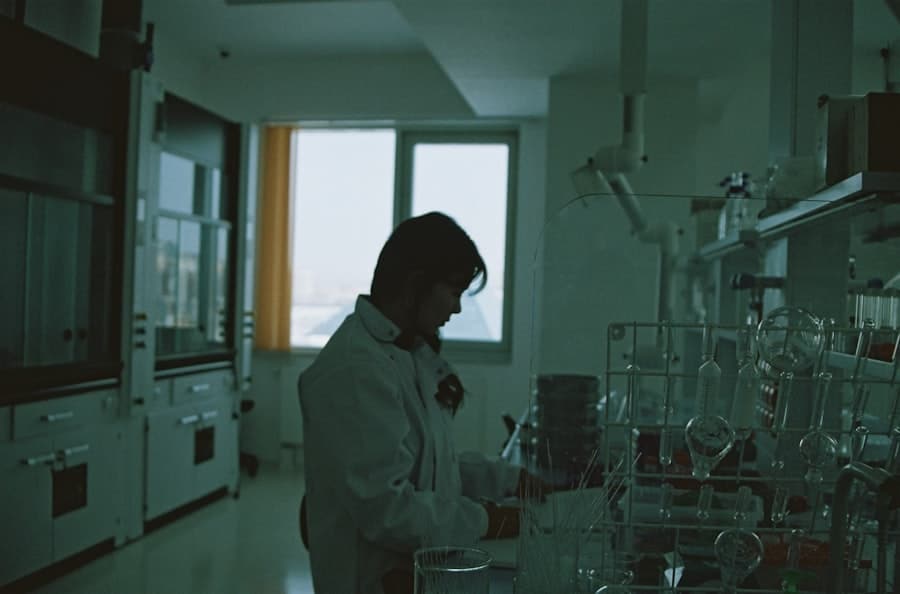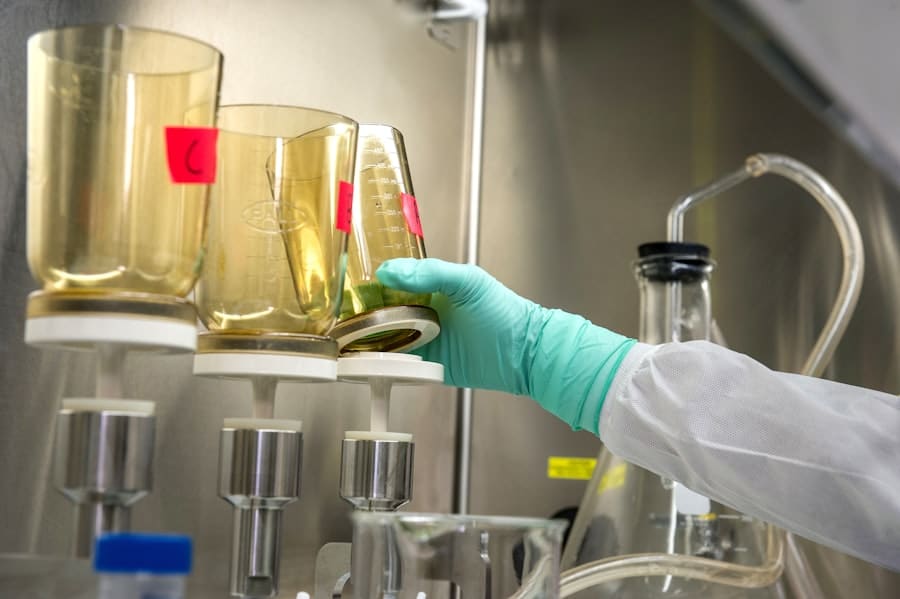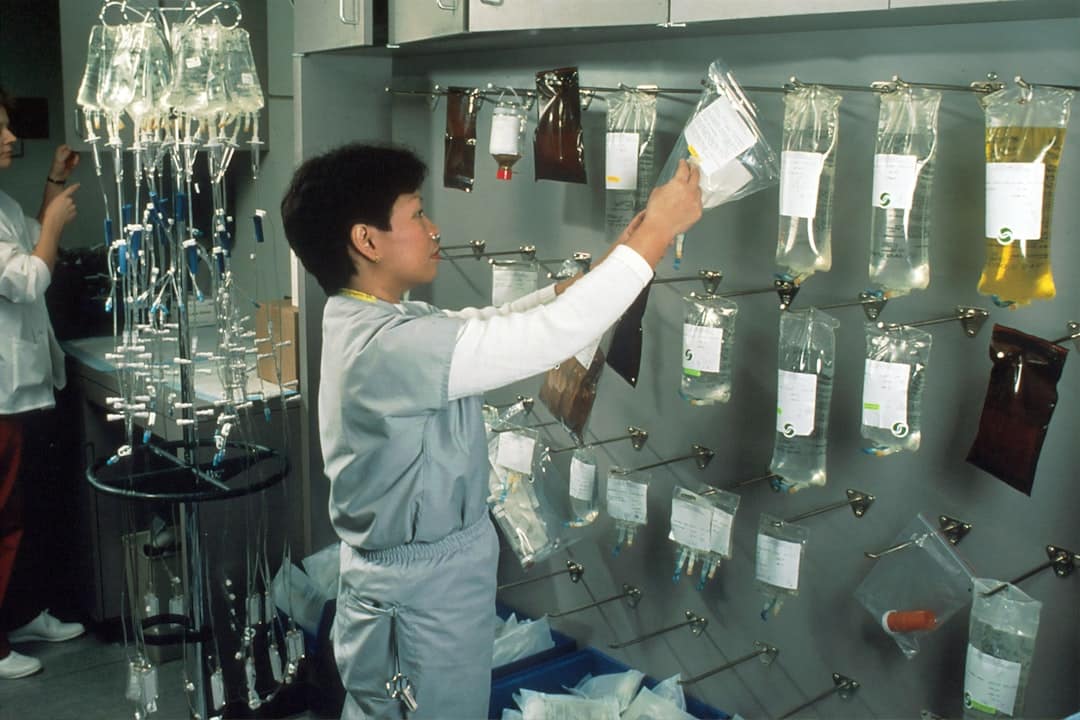Biotechnology, a field that harnesses biological systems and organisms to develop products and technologies, has seen remarkable advancements over the past few decades. From the early days of recombinant DNA technology to the cutting-edge CRISPR gene-editing techniques, biotech innovations have transformed various sectors, including healthcare, agriculture, and environmental management. The integration of biology with technology has not only enhanced our understanding of life sciences but has also paved the way for solutions to some of the most pressing challenges facing humanity today.
As we delve deeper into this dynamic field, it becomes evident that biotech innovations are not merely scientific curiosities; they are pivotal in shaping a sustainable future. The rapid evolution of biotechnology is driven by a confluence of factors, including advancements in genomics, proteomics, and bioinformatics. These technologies enable researchers to manipulate biological systems at an unprecedented scale and precision.
For instance, the development of monoclonal antibodies has revolutionized cancer treatment, while genetically modified organisms (GMOs) have transformed agricultural practices by increasing crop yields and resistance to pests. As we explore the multifaceted landscape of biotech innovations, it is crucial to understand both their potential and the societal implications they carry.
Key Takeaways
- Biotech innovations have revolutionized various industries, including healthcare, agriculture, and environmental sustainability.
- Public perception of biotech innovations is influenced by factors such as media coverage, education, and personal beliefs.
- The benefits of biotech innovations include improved medical treatments, increased crop yields, and reduced environmental impact.
- Concerns and risks associated with biotech innovations include potential health and environmental hazards, ethical dilemmas, and economic inequality.
- Government regulation and oversight of biotech innovations play a crucial role in ensuring safety, ethical standards, and public trust.
Public Perception of Biotech Innovations
Public perception of biotechnology is a complex tapestry woven from scientific understanding, cultural beliefs, and media representation. While many individuals recognize the potential benefits of biotech innovations, there remains a significant portion of the population that harbors skepticism or outright fear.
For example, genetically modified foods have faced considerable backlash from consumers who worry about their long-term health effects and environmental impact. Media portrayal plays a critical role in shaping public opinion on biotechnology. Sensationalized headlines and dramatic narratives often overshadow nuanced discussions about the science involved.
Documentaries and news reports that focus on potential risks without adequately addressing the benefits can lead to heightened anxiety among the public. Furthermore, grassroots movements advocating for organic farming and against GMOs have gained traction, influencing consumer choices and policy decisions. This dichotomy in public perception underscores the need for effective communication strategies that convey the complexities of biotechnology in an accessible manner.
Benefits of Biotech Innovations

The benefits of biotech innovations are vast and varied, impacting numerous sectors in profound ways. In healthcare, biotechnology has led to groundbreaking treatments and therapies that were once thought impossible. For instance, the development of personalized medicine—tailoring treatments based on an individual’s genetic makeup—has revolutionized cancer care.
Targeted therapies, such as those using monoclonal antibodies or small molecule inhibitors, have shown remarkable efficacy in treating specific cancer types while minimizing side effects compared to traditional chemotherapy. In agriculture, biotech innovations have enabled farmers to produce more resilient crops that can withstand harsh environmental conditions. Genetically modified crops such as Bt cotton and Roundup Ready soybeans have been engineered to resist pests and tolerate herbicides, respectively.
These advancements not only increase crop yields but also reduce the need for chemical pesticides, leading to more sustainable farming practices. Additionally, biotechnology plays a crucial role in addressing food security by developing crops that are fortified with essential nutrients, such as Golden Rice enriched with vitamin A, which aims to combat malnutrition in developing countries.
Concerns and Risks Associated with Biotech Innovations
Despite the numerous benefits associated with biotech innovations, there are legitimate concerns and risks that warrant careful consideration. One major concern is the potential for unintended consequences resulting from genetic modifications. For example, the introduction of genetically modified organisms into ecosystems can disrupt local biodiversity and lead to unforeseen ecological impacts.
The case of genetically modified crops crossbreeding with wild relatives raises questions about the long-term effects on natural populations and ecosystems. Moreover, there are ethical concerns surrounding issues such as gene editing in humans. The advent of CRISPR technology has opened up possibilities for correcting genetic disorders but also raises questions about designer babies and the potential for eugenics.
The ability to edit genes could lead to societal pressures to conform to certain genetic standards, thereby exacerbating existing inequalities. These concerns highlight the need for ongoing dialogue among scientists, ethicists, policymakers, and the public to navigate the complex landscape of biotech innovations responsibly.
Government Regulation and Oversight of Biotech Innovations
Government regulation plays a crucial role in ensuring the safety and efficacy of biotech innovations while fostering an environment conducive to scientific advancement. Regulatory frameworks vary significantly across countries, reflecting differing cultural attitudes toward biotechnology. In the United States, agencies such as the Food and Drug Administration (FDA) and the Environmental Protection Agency (EPA) oversee the approval process for biotech products.
The FDA evaluates the safety of genetically modified foods, while the EPA assesses the environmental impact of biotech crops. In contrast, European countries tend to adopt a more precautionary approach toward biotechnology, often resulting in stricter regulations and longer approval processes for genetically modified organisms. This divergence in regulatory practices can create challenges for international trade and collaboration in biotech research.
As global challenges such as climate change and food security become increasingly pressing, harmonizing regulatory standards may be essential for fostering innovation while ensuring public safety.
Ethical and Moral Considerations

The ethical implications of biotech innovations extend beyond regulatory frameworks; they delve into fundamental questions about what it means to manipulate life itself. The ability to edit genes raises profound moral dilemmas regarding human enhancement versus disease prevention. For instance, while gene therapy holds promise for treating genetic disorders like cystic fibrosis or sickle cell anemia, it also opens the door to potential misuse for non-therapeutic enhancements.
This blurring of lines between treatment and enhancement necessitates a robust ethical framework that considers not only scientific feasibility but also societal values. Furthermore, issues of access and equity must be addressed within the context of biotechnology. As cutting-edge treatments become available, disparities in access could exacerbate existing health inequalities.
Wealthier individuals may benefit from advanced therapies while marginalized communities remain underserved. Ensuring equitable access to biotech innovations is not only a matter of social justice but also essential for maximizing their potential benefits across society.
Future Outlook for Biotech Innovations
The future of biotech innovations is poised for exponential growth as technological advancements continue to unfold at a rapid pace. Emerging fields such as synthetic biology hold immense promise for creating novel organisms with tailored functions, potentially revolutionizing industries ranging from pharmaceuticals to biofuels. The ability to engineer microorganisms to produce bio-based materials or pharmaceuticals could lead to more sustainable production methods that reduce reliance on fossil fuels.
Moreover, advancements in artificial intelligence (AI) and machine learning are set to enhance research capabilities within biotechnology. AI algorithms can analyze vast datasets generated by genomic sequencing or clinical trials, accelerating drug discovery processes and improving patient outcomes through predictive analytics. As these technologies converge, they will likely unlock new avenues for innovation while posing additional ethical considerations that must be navigated thoughtfully.
Conclusion and Call to Action
As we stand on the brink of a new era in biotechnology, it is imperative that we engage in informed discussions about its implications for society. The potential benefits are immense—ranging from improved healthcare outcomes to sustainable agricultural practices—but they come with significant responsibilities. Policymakers must prioritize transparent regulatory frameworks that balance innovation with safety while fostering public trust through education and outreach initiatives.
Moreover, stakeholders across sectors must collaborate to ensure equitable access to biotech innovations so that their benefits can be shared broadly rather than concentrated among privileged groups. As citizens, we must remain informed advocates for responsible biotechnology practices that align with our values and aspirations for a better future.
In the realm of biotechnology, public opinion plays a crucial role in shaping the trajectory of innovations and their acceptance in society. An interesting perspective on this can be found in the article “Top Trends on LinkedIn 2023,” which discusses how professional networks are increasingly becoming platforms for discourse on emerging technologies, including biotech. This article highlights how LinkedIn trends reflect broader societal attitudes and can influence public perception and policy-making in the biotech sector.
FAQs
What is biotechnology?
Biotechnology is the use of living organisms or their products to modify or improve human health, agriculture, and the environment.
What are some examples of biotech innovations?
Some examples of biotech innovations include genetically modified crops, gene editing technologies like CRISPR, and biopharmaceuticals such as insulin and vaccines.
How does public opinion on biotech innovations vary?
Public opinion on biotech innovations varies widely depending on factors such as education, cultural beliefs, and exposure to information about the benefits and risks of biotechnology.
What are some common concerns about biotech innovations?
Common concerns about biotech innovations include potential environmental impacts, ethical considerations related to genetic modification, and the safety of biotech products for human consumption.
How do policymakers consider public opinion on biotech innovations?
Policymakers often take public opinion into account when making decisions about the regulation and funding of biotech innovations, as public support can influence the success and acceptance of these technologies.

